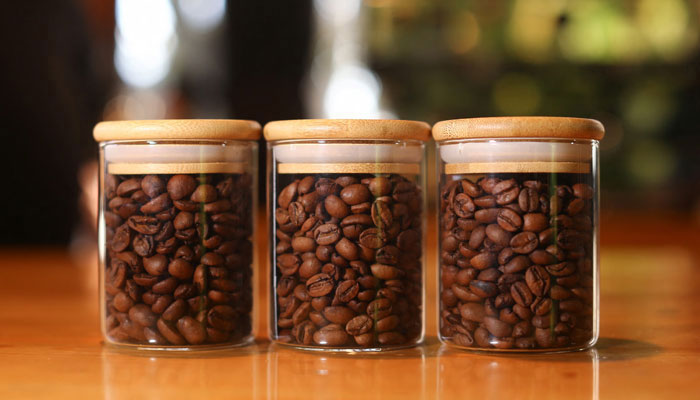Why Pakistan’s coffee policy needs a rethink
LAHORE: In a developing economy like Pakistan, the strategic import of key commodities can serve as a catalyst for industrial growth, job creation and export diversification. Unfortunately, Pakistan’s approach to importing essential commodities often focuses on revenue generation rather than industrial development.
One such commodity is coffee -- the raw material for a global multi-billion-dollar industry that Pakistan has yet to fully tap into. As consumer tastes evolve and urban cafe culture gains momentum, aligning trade policy with industrial objectives could position Pakistan as a competitive player in value-added coffee exports.
The international coffee market was valued at over $100 billion in 2023, with consumption continuing to rise in both developed and emerging markets. While historically dominated by producers such as Brazil, Colombia and Ethiopia, value-added processing and branding have increasingly shifted to non-producing countries -- highlighting the immense potential for nations like Pakistan to carve out a niche through effective industrial policy.
Despite rising demand for coffee in Pakistan, high import duties are holding back industry growth. Since SRO 840(I)/2021 was introduced in June 2021, finished coffee products have faced duties of 42–53 percent, while even bulk instant coffee -- used in manufacturing -- carries a steep 28 per cent duty, including 15 per cent regulatory duty (RD) and 2.0 per cent additional customs duty (ACD). These industrial inputs are unfairly taxed at the same rate as retail goods, undermining incentives to process or manufacture locally.
This contradicts the principles laid out in Pakistan’s own National Tariff Policy (2019-24), which emphasises rationalising tariffs to boost domestic manufacturing, encourage local value addition, and protect downstream users. Meanwhile, tea -- coffee’s closest substitute -- faces only a 13 per cent duty. This stark policy inconsistency distorts market competition, discouraging consumers and investors from engaging in a sector with significant future potential.
Local entrepreneurs and SMEs interested in entering the coffee manufacturing space are deterred by these cost disadvantages, which hamper innovation, domestic production, and the development of value-added coffee products. These barriers also prevent the formation of new export industries.
Pakistan is not alone at this crossroads. Several economies with no domestic coffee cultivation have transformed themselves into global processing hubs through smart policy design. Germany, for example, has become one of the world’s top exporters of roasted and ground coffee by imposing zero duty on green coffee beans and investing heavily in its processing industry. In 2022 alone, Germany exported over $3 billion worth of processed coffee.
Similarly, South Korea and Japan -- both non-producers -- have become global players in the ready-to-drink and instant coffee segments. South Korea leveraged low import duties and strong domestic branding to grow its coffee industry into a $5 billion market. Japan has used trade liberalisation and public-private partnerships to become a leader in canned and specialty coffees. Their success shows that, with the right ecosystem, coffee can become a cornerstone of industrial and export strategy, regardless of agricultural capacity.
These examples demonstrate the importance of low duties on raw materials, targeted support for domestic processing, and a focus on innovation and quality. With a growing young population, rapid urbanisation and rising consumption trends, Pakistan is well positioned to follow a similar trajectory -- if the policy environment allows it.
Currently, domestic production meets only 5.0 per cent of Pakistan’s coffee demand. By removing the regulatory duty and additional customs duty on bulk instant coffee, the government can treat it as an industrial input -- just as it does with palm oil for snacks or raw cotton for textiles. Import duties on finished, retail-ready coffee products can still be retained to protect fledgling local processors, creating a two-tiered system that promotes industrial growth while maintaining market fairness.
With the right policy shifts, Pakistan could develop a thriving coffee processing industry that not only satisfies local demand but also reaches global markets. By enabling value-added processing in this high-potential sector, Pakistan could brew more than just better coffee -- it could brew a stronger economic future.
-
 US Judge Aileen Cannon Issues Permanent Order In Trump Documents Case
US Judge Aileen Cannon Issues Permanent Order In Trump Documents Case -
 King Charles, Royals Are Not ‘bright’ Enough To Live In Mansions
King Charles, Royals Are Not ‘bright’ Enough To Live In Mansions -
 'Final Throw Of The Dice': Paramount Submits Highest Bid Offer To Warner Bros. In Last Round
'Final Throw Of The Dice': Paramount Submits Highest Bid Offer To Warner Bros. In Last Round -
 China Rolls Out New AI-powered 'DeepRare' Technology For Efficient Medical Diagnosis
China Rolls Out New AI-powered 'DeepRare' Technology For Efficient Medical Diagnosis -
 Kim Kardashian Says She Misses Her Dad Robert Kardashian 'every Day' In Heartfelt Post
Kim Kardashian Says She Misses Her Dad Robert Kardashian 'every Day' In Heartfelt Post -
 Chris Hemsworth Gets Candid About Daughter’s Drawings That Inspired Several Of His Tattoos
Chris Hemsworth Gets Candid About Daughter’s Drawings That Inspired Several Of His Tattoos -
 UK To Experience Rare 'Blood Rain' On Tuesday Feb. 24, 2026: Know Every Detail
UK To Experience Rare 'Blood Rain' On Tuesday Feb. 24, 2026: Know Every Detail -
 Maria Shriver Shares Heartbreaking Reminder After Eric Dane's Death: 'Next Week Isn't Guaranteed'
Maria Shriver Shares Heartbreaking Reminder After Eric Dane's Death: 'Next Week Isn't Guaranteed' -
 Andrew Mountbatten Windsor Gets New Moniker After Losing ‘Prince’ Title
Andrew Mountbatten Windsor Gets New Moniker After Losing ‘Prince’ Title -
 Jack Black Shares Unseen Moments With Tanya Haden: 'My Love'
Jack Black Shares Unseen Moments With Tanya Haden: 'My Love' -
 Shamed Andrew Made Taxpayers Fund Personal ‘massages’
Shamed Andrew Made Taxpayers Fund Personal ‘massages’ -
 What Could Be Nick Reiner's Fate After Pleading Not Guilty Parents’ Murder Case?
What Could Be Nick Reiner's Fate After Pleading Not Guilty Parents’ Murder Case? -
 Princess Kate Talks About 'hard Conversations' With Kids Amid Andrew Drama
Princess Kate Talks About 'hard Conversations' With Kids Amid Andrew Drama -
 Prince William Mocked For Being ‘most Reluctant’ King-in-waiting
Prince William Mocked For Being ‘most Reluctant’ King-in-waiting -
 Prince William Makes Rare Admission After Andrew Arrest
Prince William Makes Rare Admission After Andrew Arrest -
 ‘Got A Lot Of People Gunning For Me’: Trump Makes First Comments On Mar-a-Lago Intruder
‘Got A Lot Of People Gunning For Me’: Trump Makes First Comments On Mar-a-Lago Intruder




